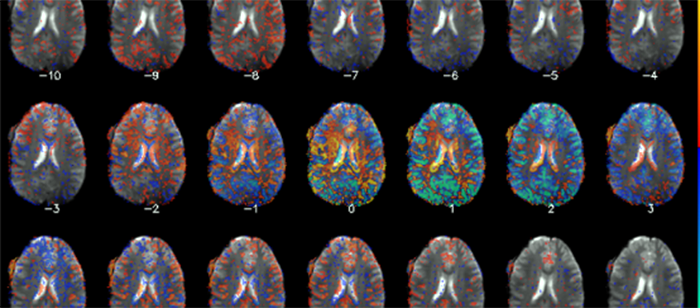
PhD Dissertation Defense
Data-driven group analysis of complex-valued fMRI data
11:00am Tuesday, 16 April 2013, ITE 346, UMBC
Analysis of functional magnetic resonance imaging (fMRI) data in its native, complex form has been shown to increase the sensitivity of the analysis both for data-driven techniques such as independent component analysis (ICA) and for model-driven techniques. The promise of an increase in sensitivity and specificity in clinical studies provides a powerful motivation for utilizing both the phase and magnitude data; however, the unknown and noisy nature of the phase poses a challenge for successful study of the fMRI data. In addition, complex-valued analysis algorithms, such as ICA, suffer from an inherent phase ambiguity, which introduces additional difficulty for group analysis and visualization of the results. We present solutions for these issues, which have been among the main reasons phase information has been traditionally discarded, and show their effectiveness when used as part of a complex-valued group ICA algorithm application. The developed methods become key components of a framework that allows the development of new fully complex data-driven and semi-blind methods to process, analyze, and visualize fMRI data.
In this dissertation, we first introduce the methods developed as part of the fully complex framework for ICA of fMRI data. We introduce a physiologically motivated de-noising method that uses phase quality maps to successfully identify and eliminate noisy voxels—3D pixels—in the fMRI complex images so they can be used in individual and group studies. We also introduce a phase correction scheme that can be either applied sub-sequent to ICA of fMRI data or can be incorporated into the ICA algorithm in the form of prior information to eliminate the need for further processing for phase correction. Finally, we present two visualization methods that are used to augment the sensitivity and specificity in the detection of activated voxels. We show the benefits of using the developed methods on actual complex-valued fMRI data.
In the remainder of the dissertation, we focus on developing constrained ICA (C-ICA) algorithms for complex-valued fMRI data. C-ICA uses prior information, hence providing a balance between model-based and data-driven approaches such as ICA to improve the source estimation performance and robustness to noise. C-ICA algorithms have been used to improve the estimation performance in real-valued fMRI data, but—to our knowledge—have not been applied to complex-valued fMRI data. We develop the first C-ICA algorithm that uses complex-valued references to constrain either the sources or the mixing coefficients. The designed algorithm is not restricted to having a unitary demixing matrix, which is a major assumption in existing C-ICA algorithms. We show, on both simulated and actual fMRI data, how the performance of ICA improves by using prior information about the fMRI paradigm.
Committee: Dr. Adali (Chair), Dr. Morris, Dr. Rutledge, Dr. Laberge, Dr. Phlypo, and Dr. Calhoun